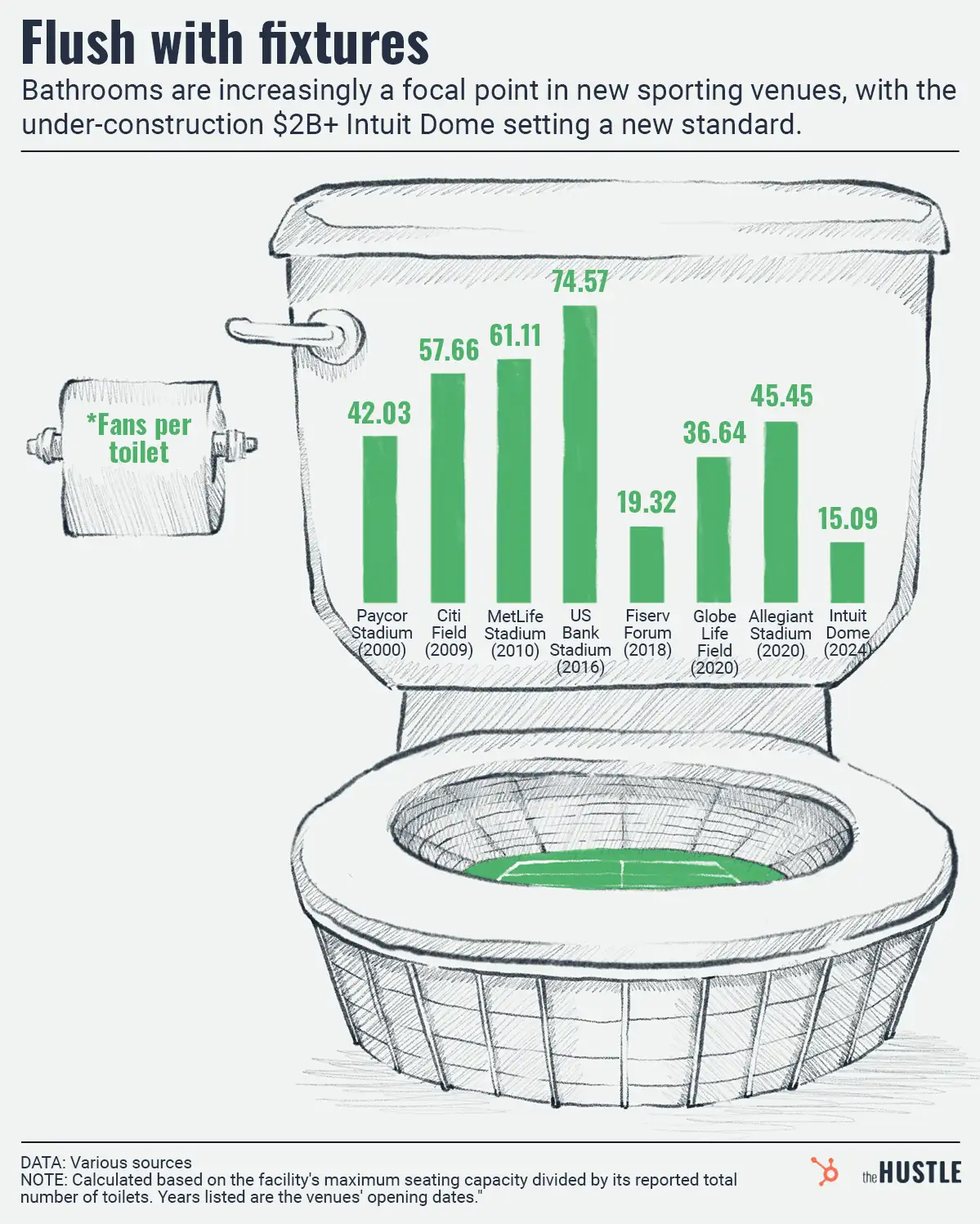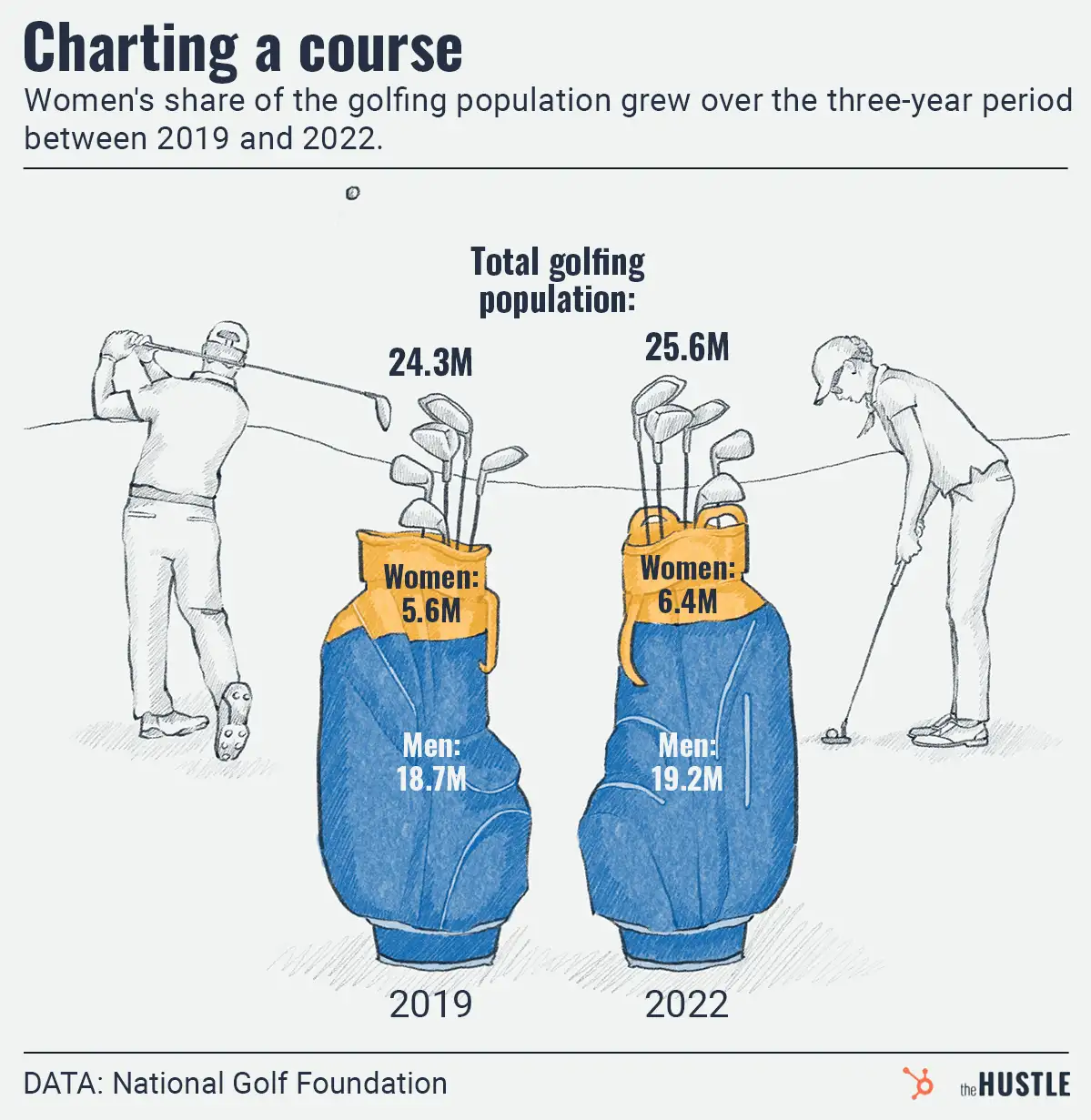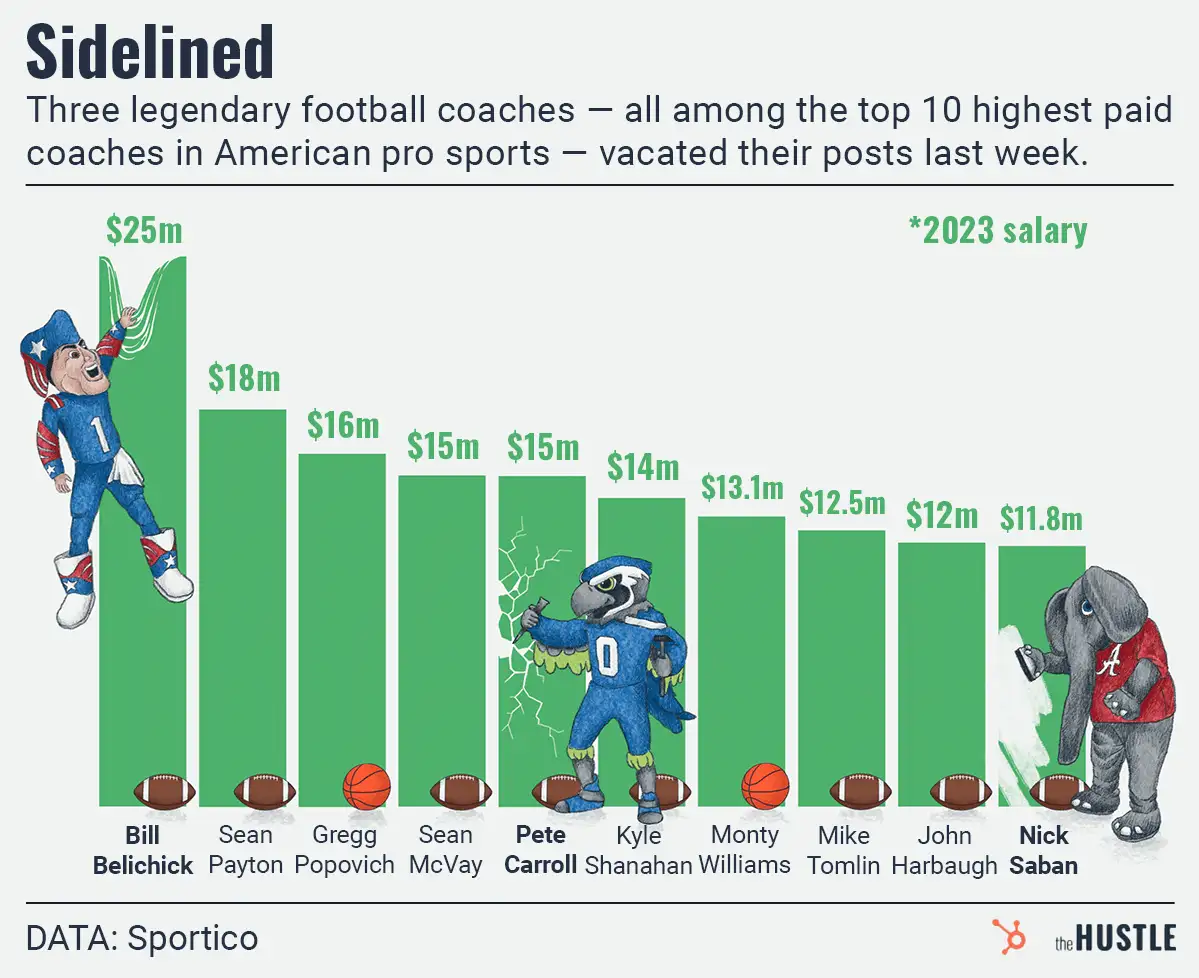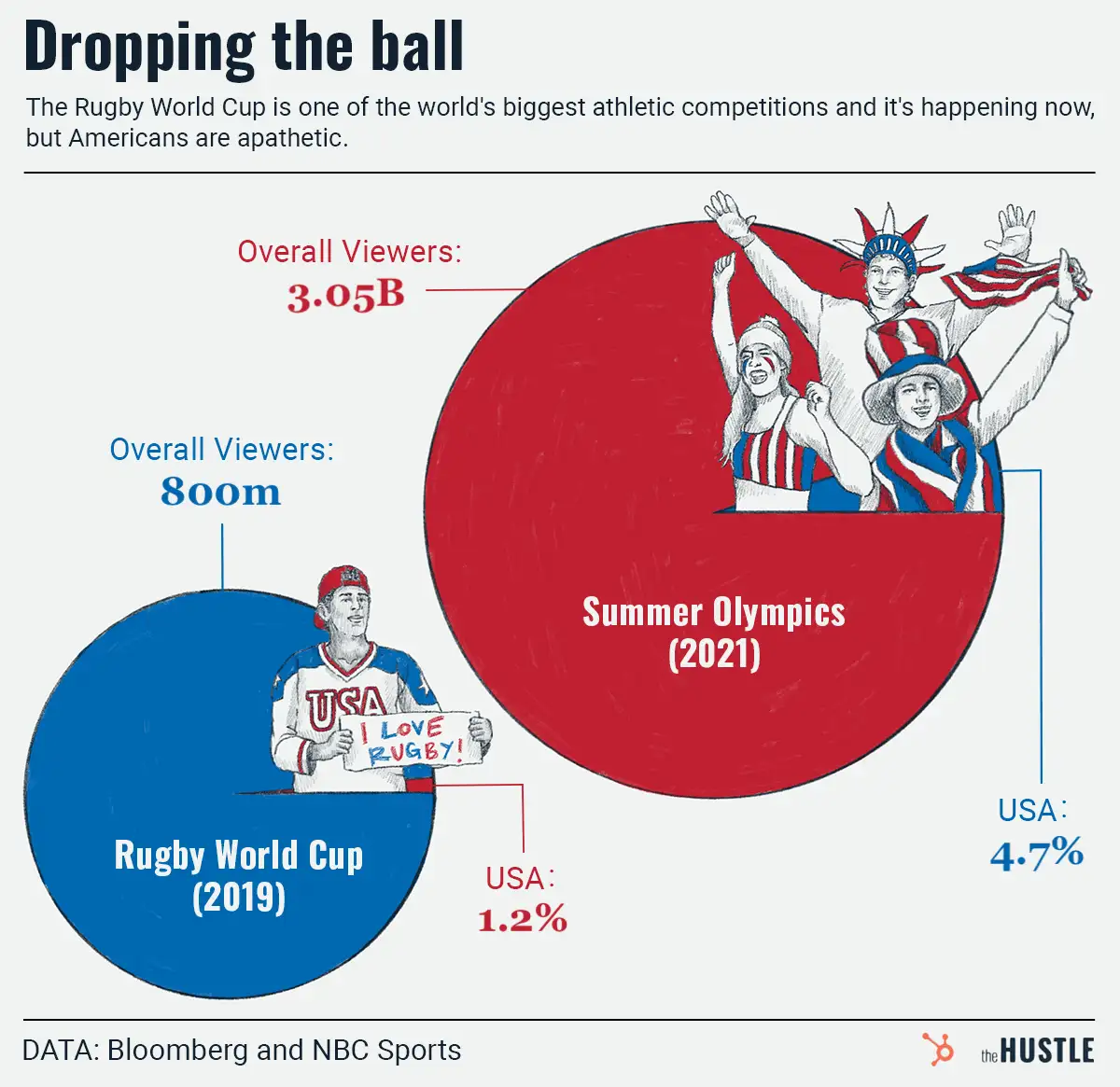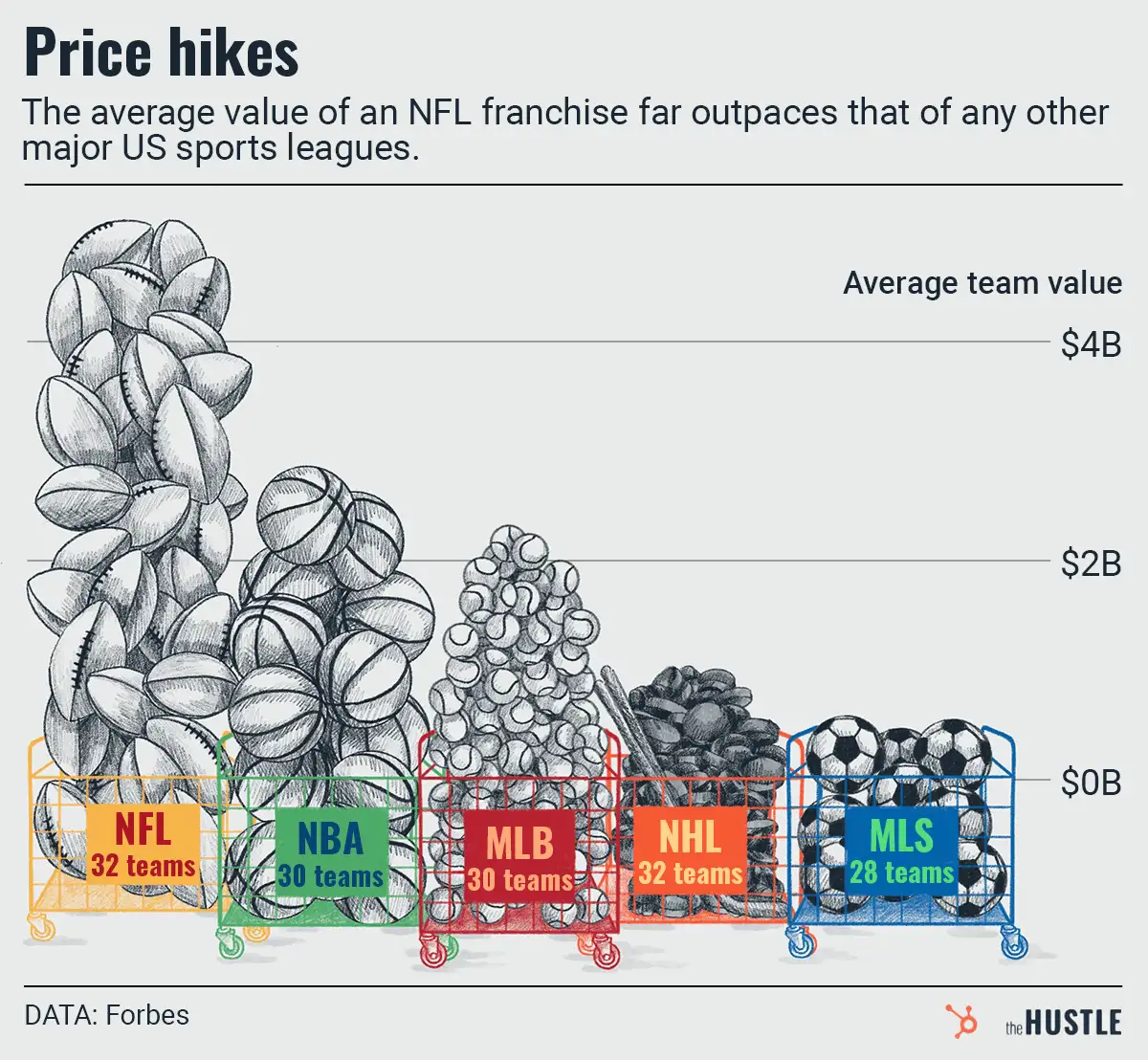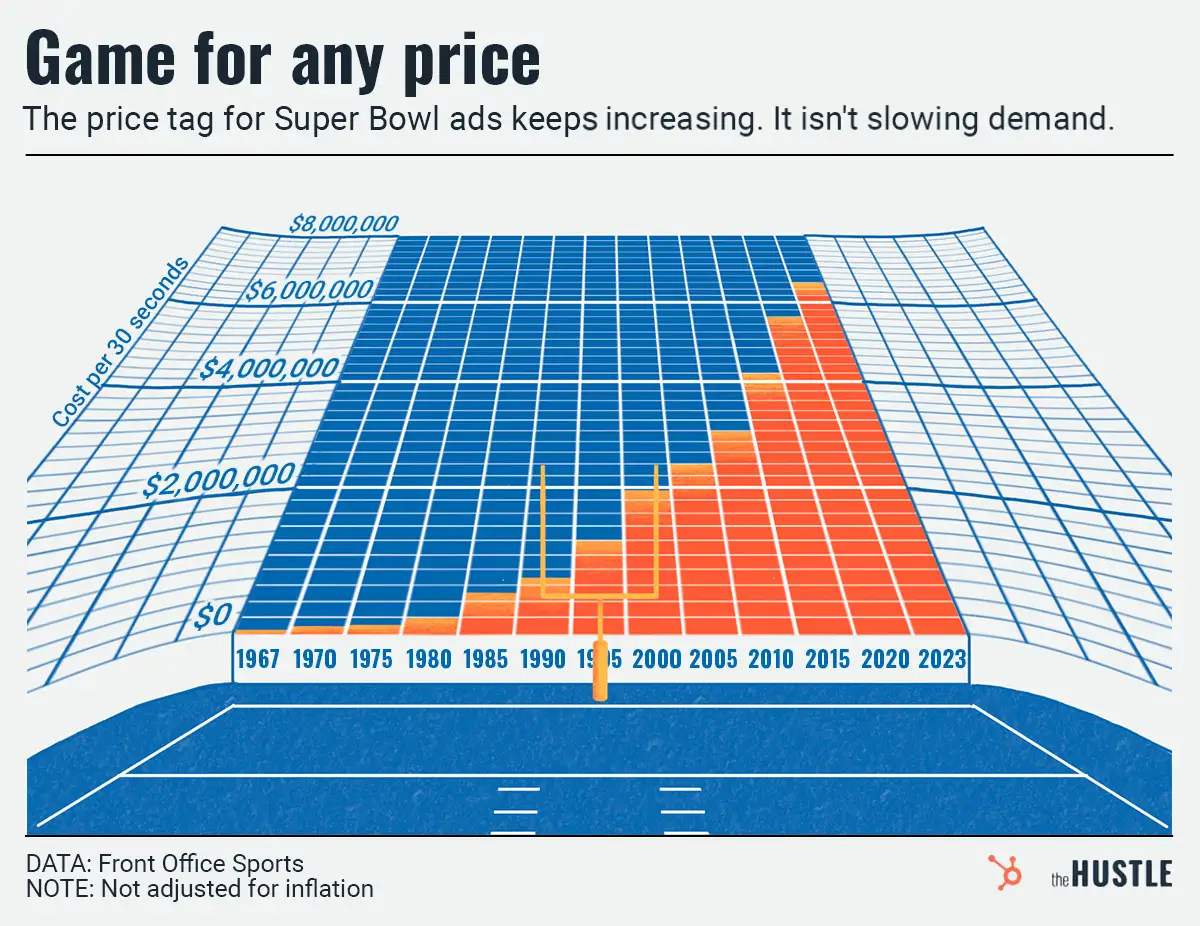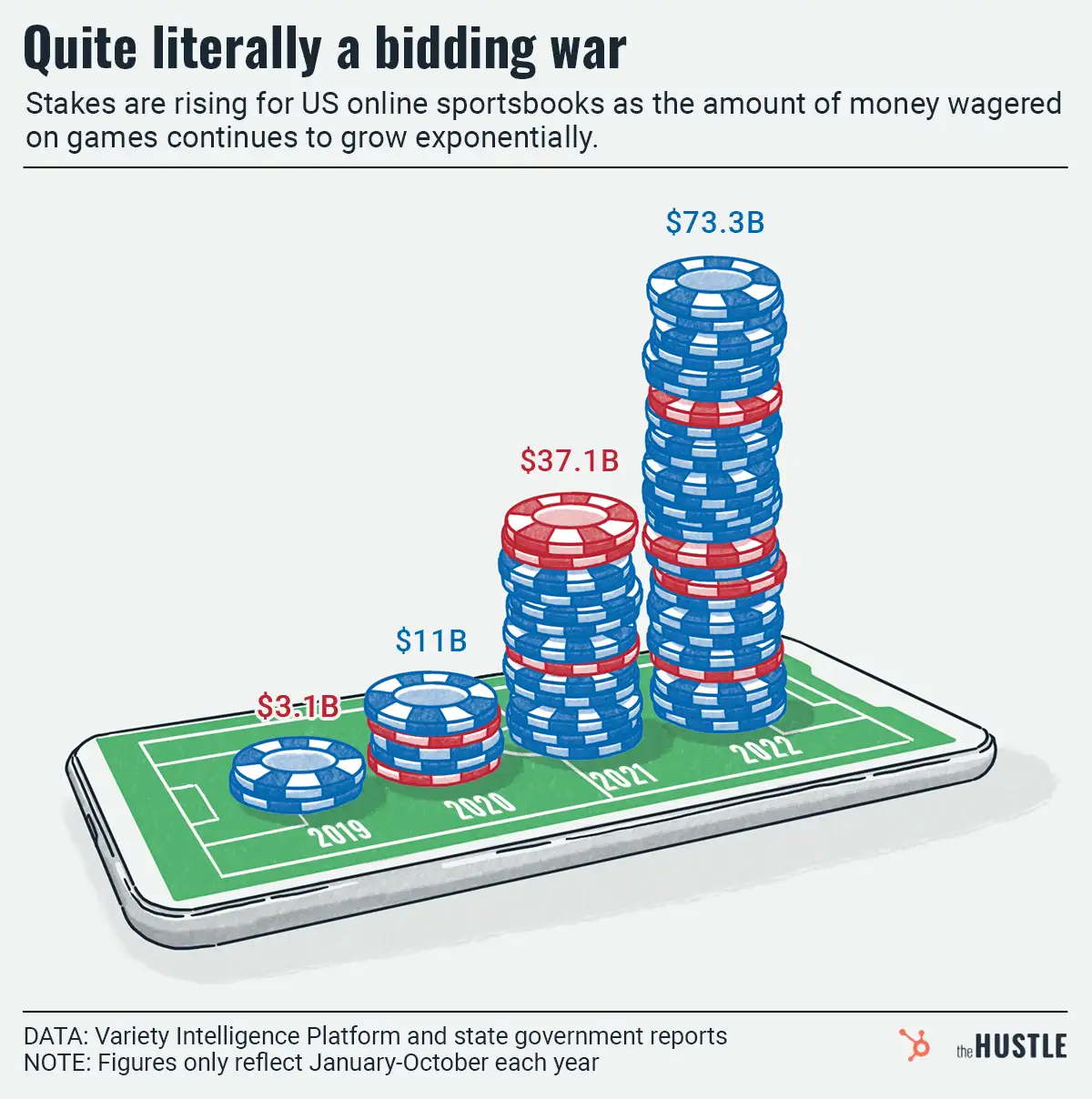Wanted to hit the links recently but couldn’t snag a tee time?

You’re not alone: The pandemic fueled interest in golf, and the National Golf Foundation says 1.3m new golfers have joined the sport in the last three years.
And more players mean more competition for tee times. To meet the demand, a new crop of businesses is bringing golf indoors, per Bloomberg.
Venues designed around golf simulators ditch the wait times and weather cancellations while keeping all the country club perks:
- Intown Golf Club — a “private social club for golfers” that’s expanding across the US — has a pro shop, steam room, and upscale restaurant and bar, in addition to its simulator bays; membership fees range from $155-$305/month.
- New York’s T-Squared Social, founded in part by Tiger Woods and Justin Timberlake, is a 22k-square-foot space that features a bowling alley, darts, a restaurant, and indoor golf; memberships are $250/quarter.
- Golfzon, which has 6.2k+ simulator locations spanning 62 countries, launched Golfzon Social, bringing food, beverages, and $500+ monthly memberships to indoor golf.
The grass might be fake, but the fees certainly aren’t: Rock Pile Golf Club in Greenwich, Connecticut, charges a $4k initiation fee in addition to $450 monthly dues for its indoor club.
Big swings
While companies like Topgolf have existed for years, indoor clubs are about more than the sport itself — they’re replicating the model used by members-only clubs like Soho House.
The trend is taking off in tandem with others in the industry:
- The home simulator market is booming as more look to swing inside.
- Activity bars have continued to flourish since we wrote about their popularity last year.
And a recent report estimates that the golf simulator market, valued at ~$1.5B in 2022, will reach $3.2B by 2031.
But if being indoors isn’t enough for you, soon you can be inside your computer at members-only metaverse golf clubs.
bc75.jpg)
